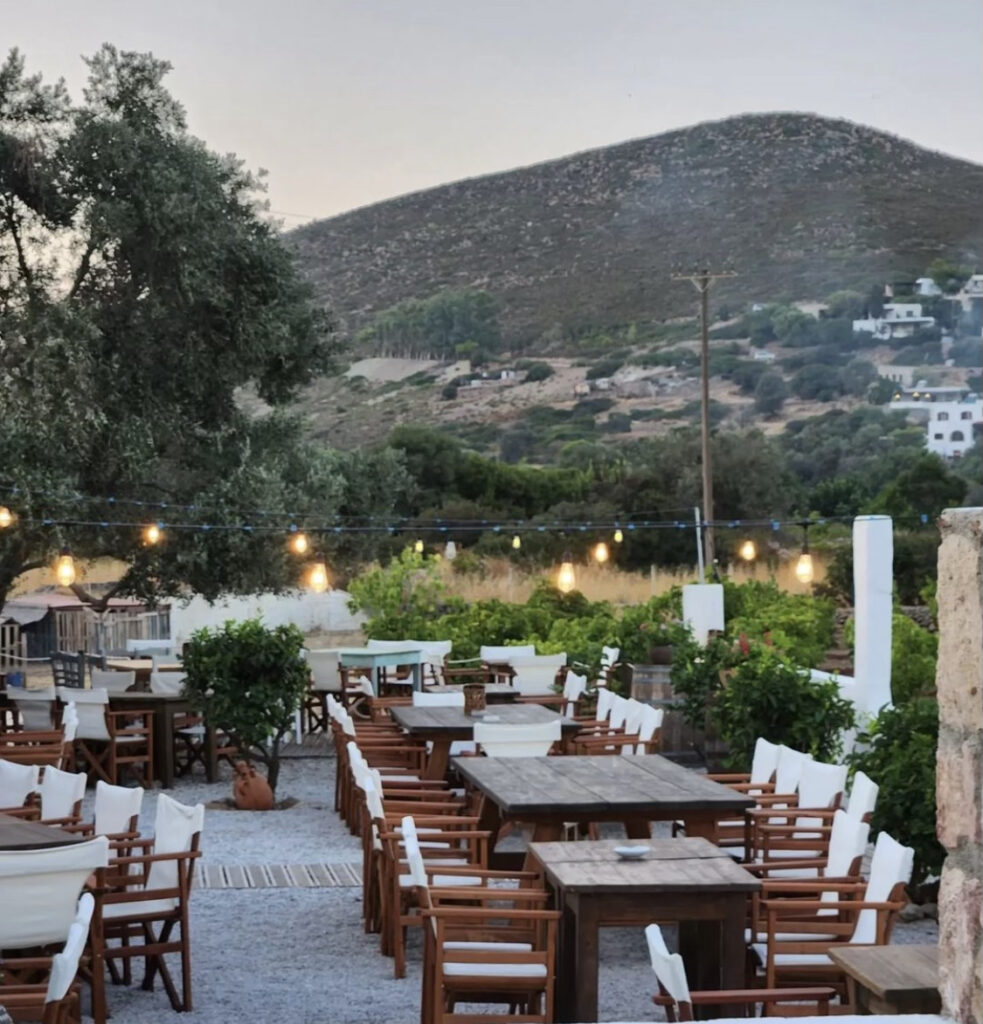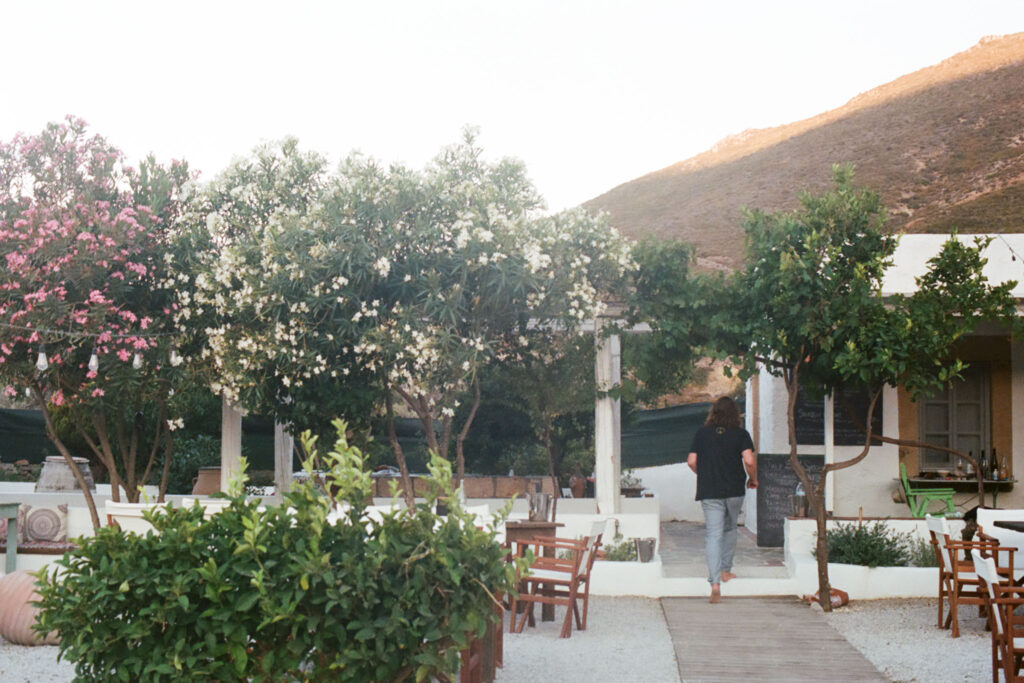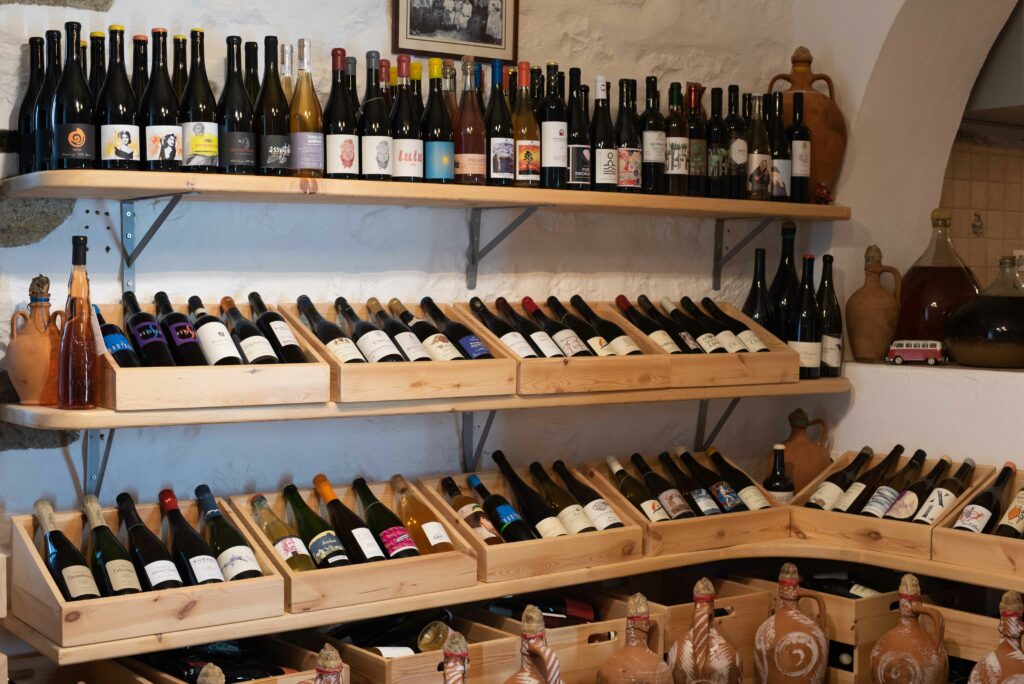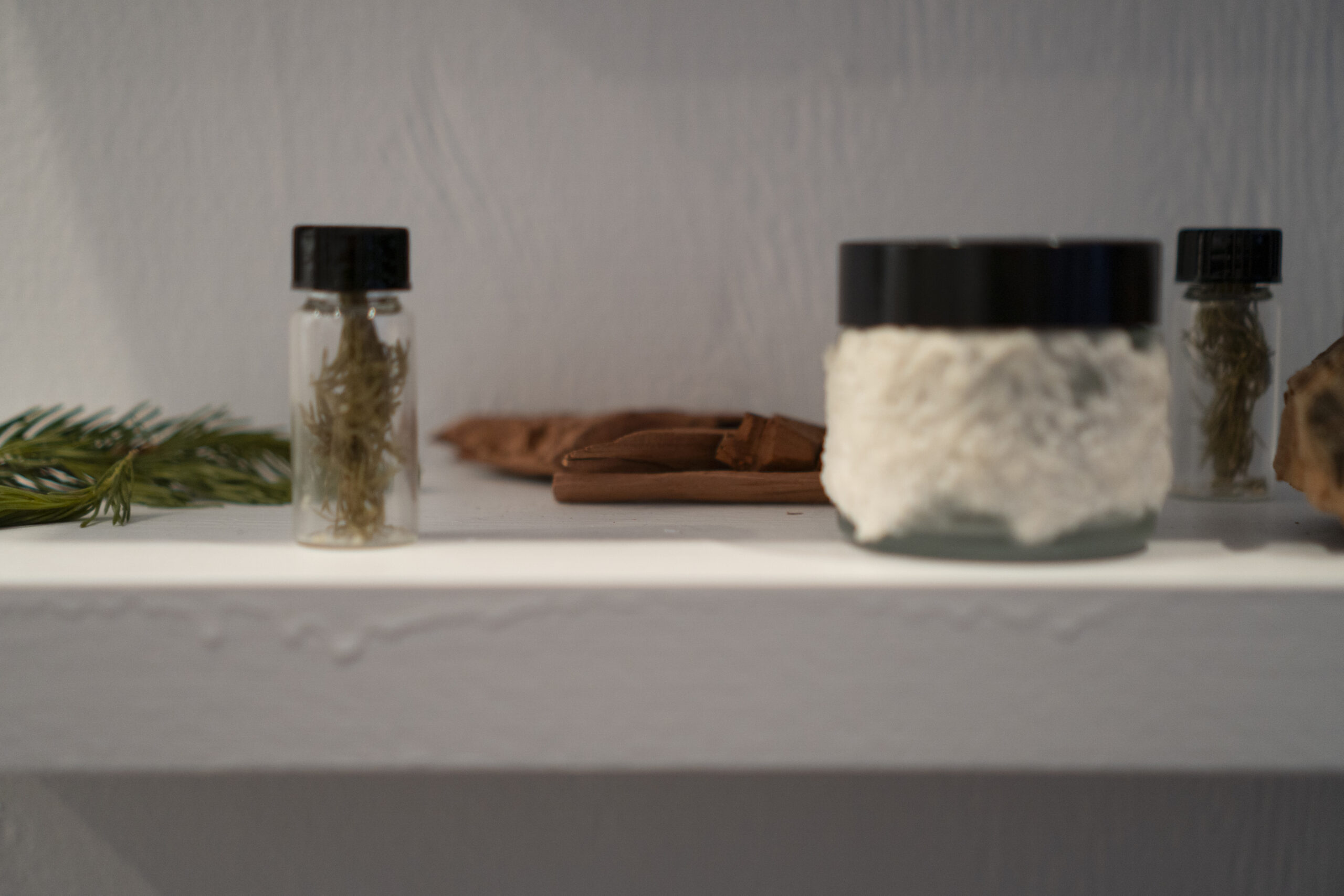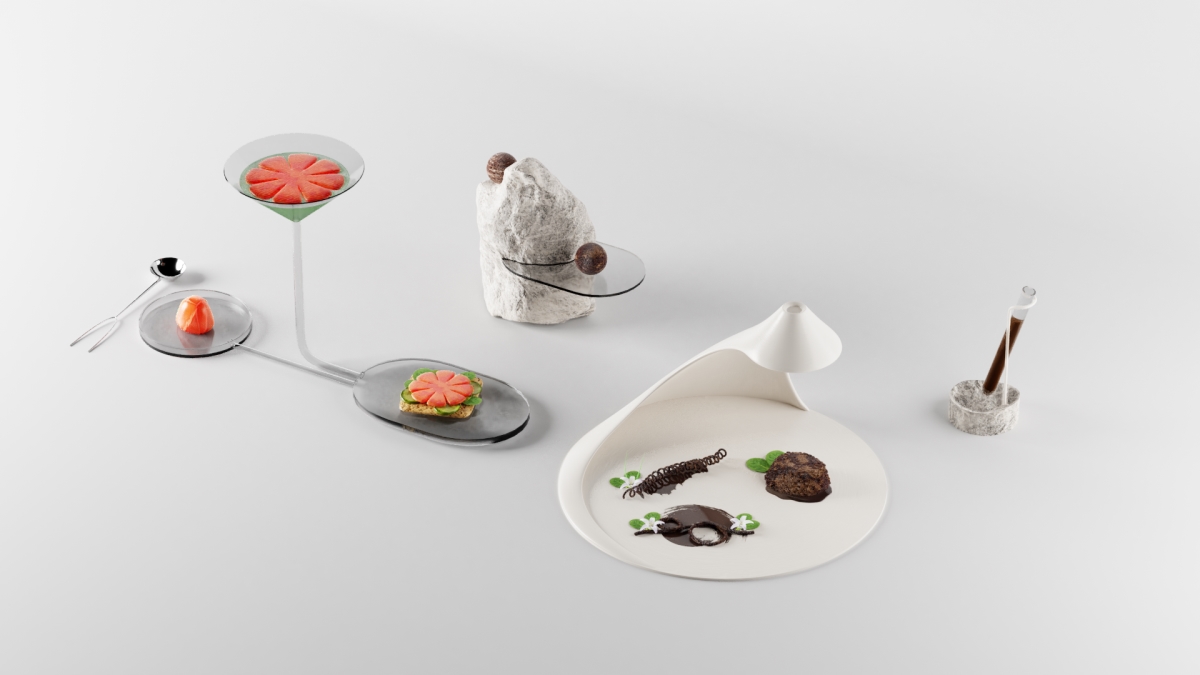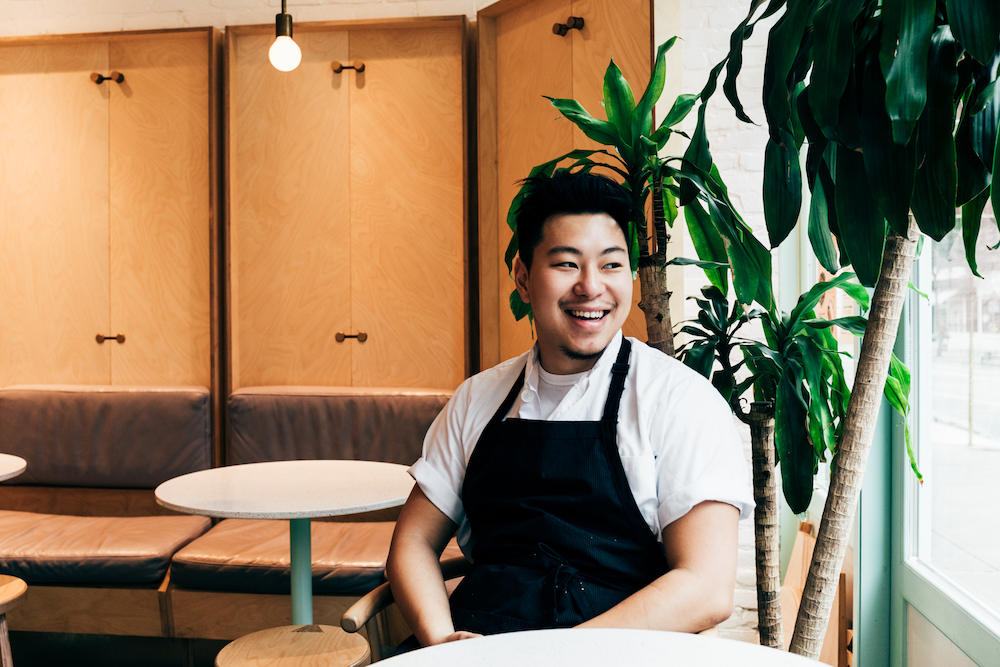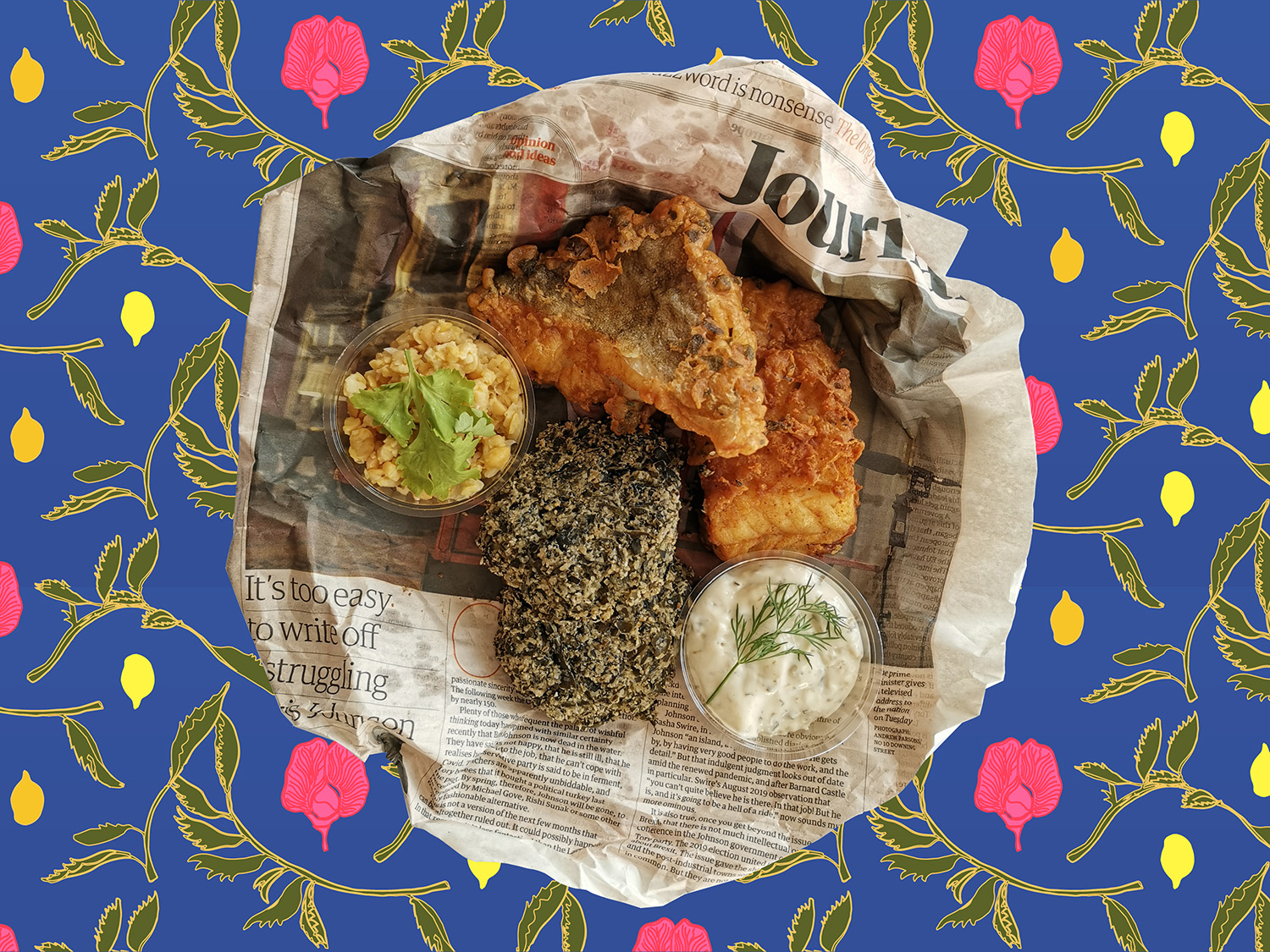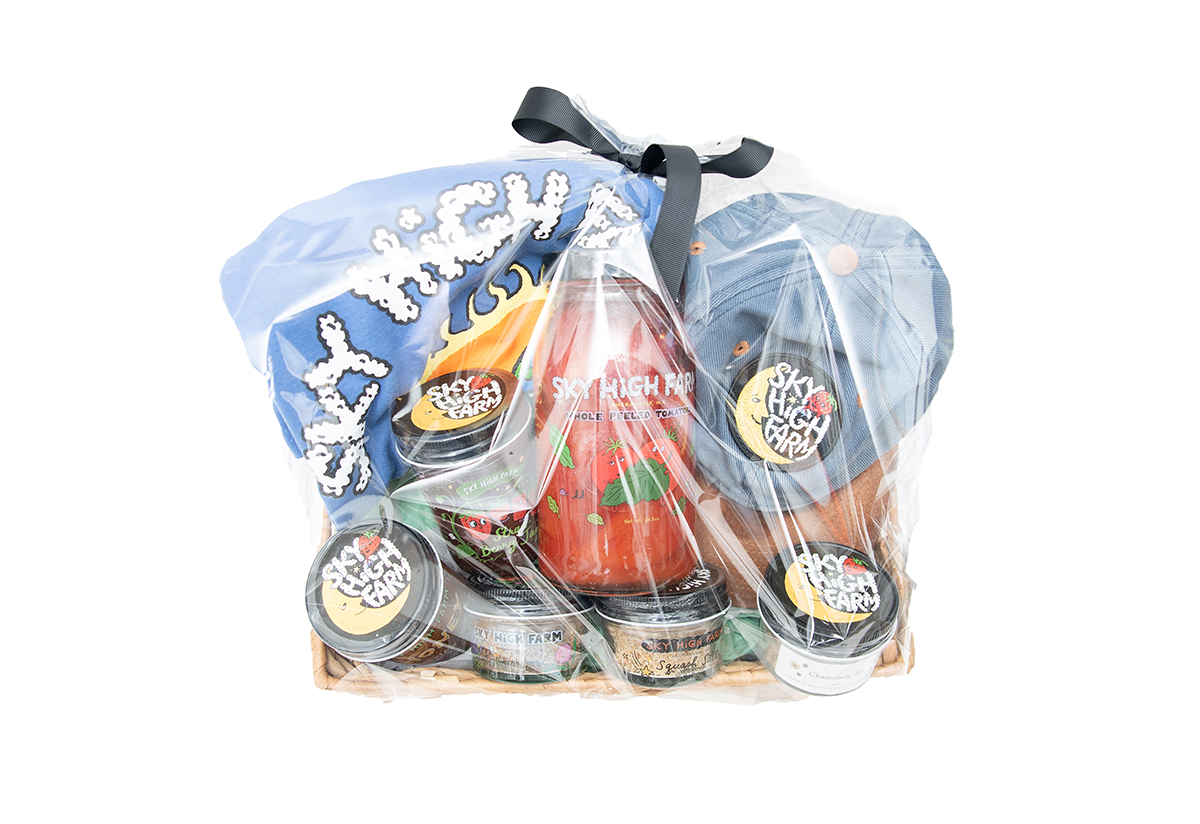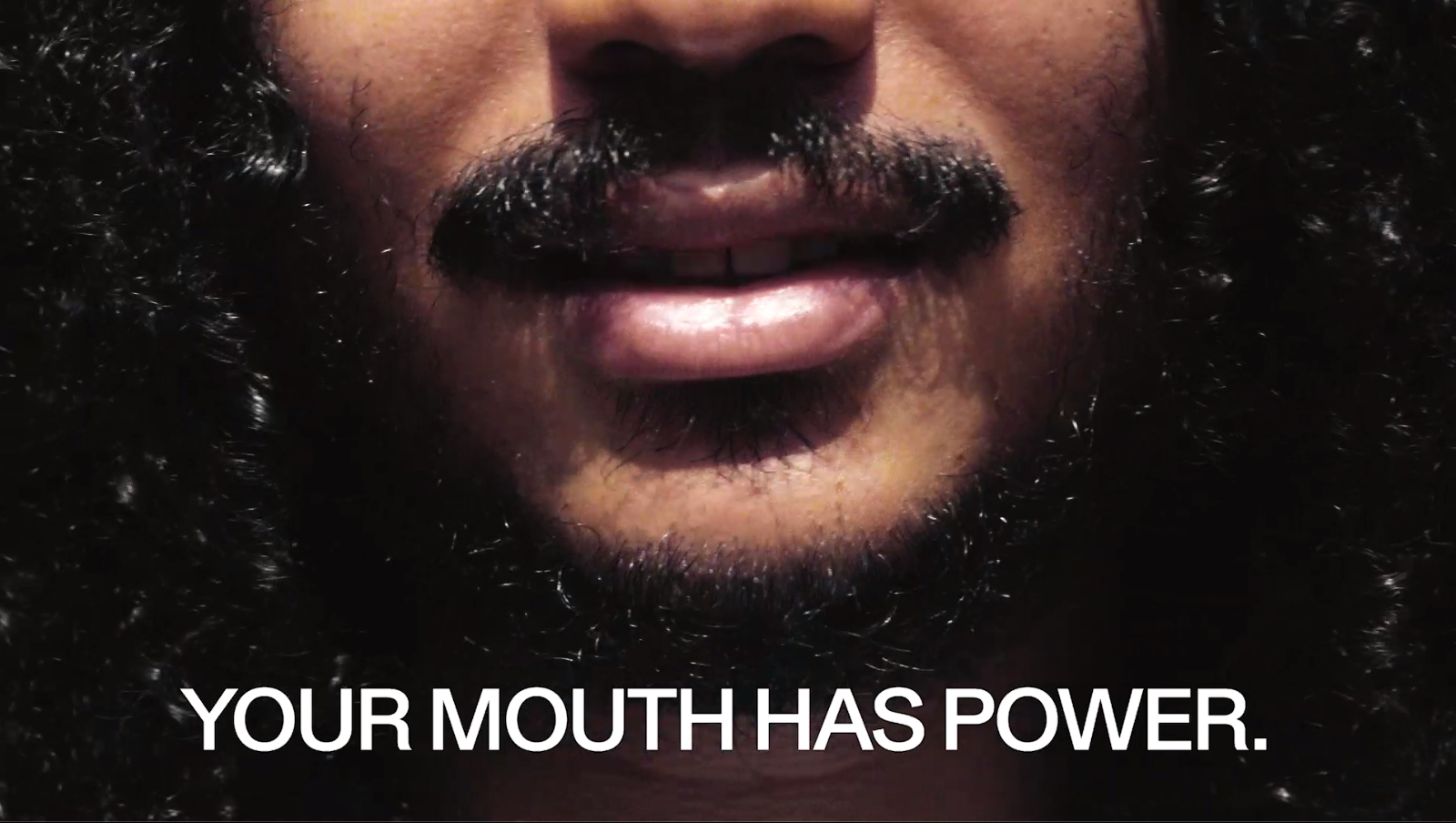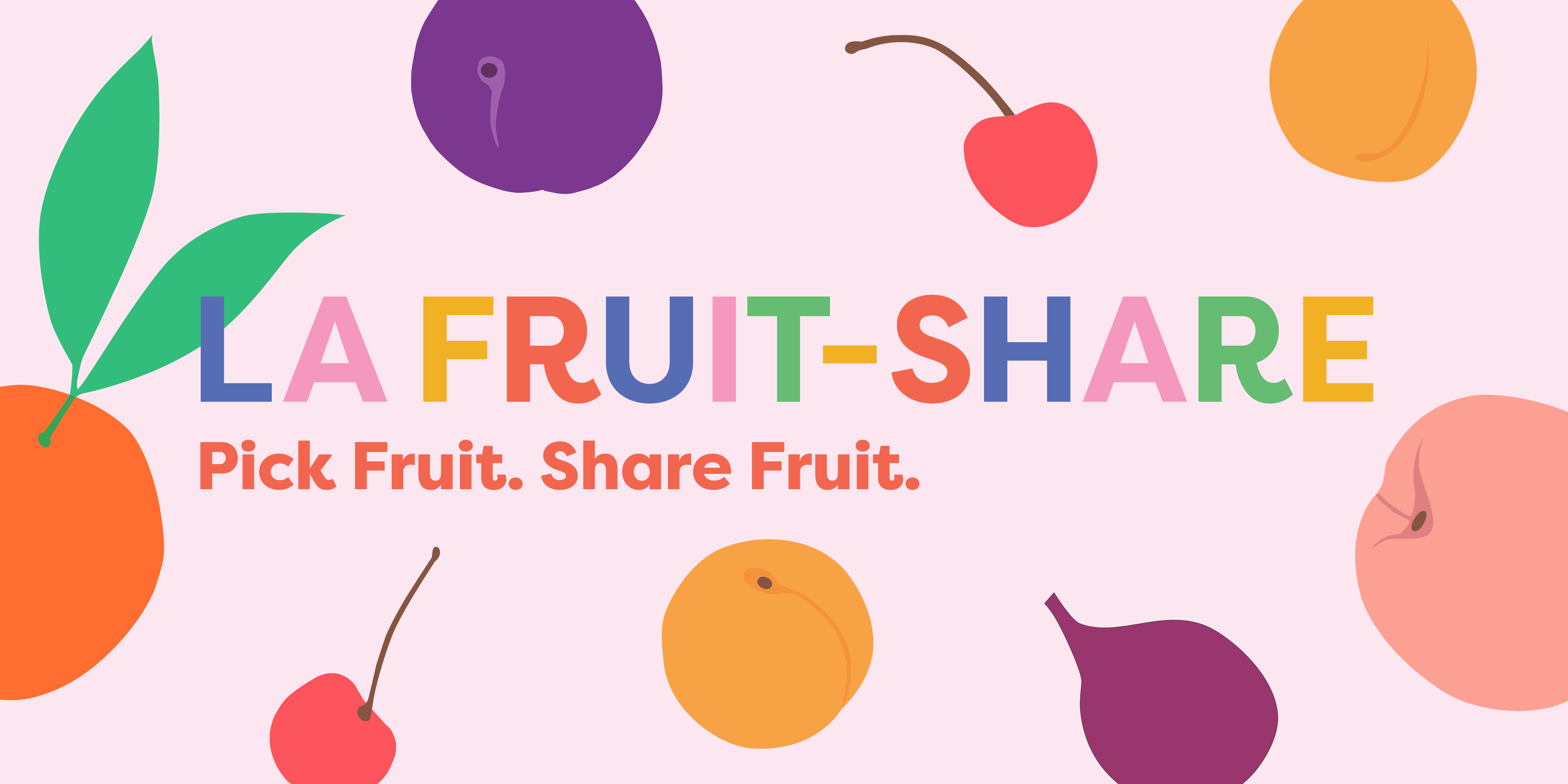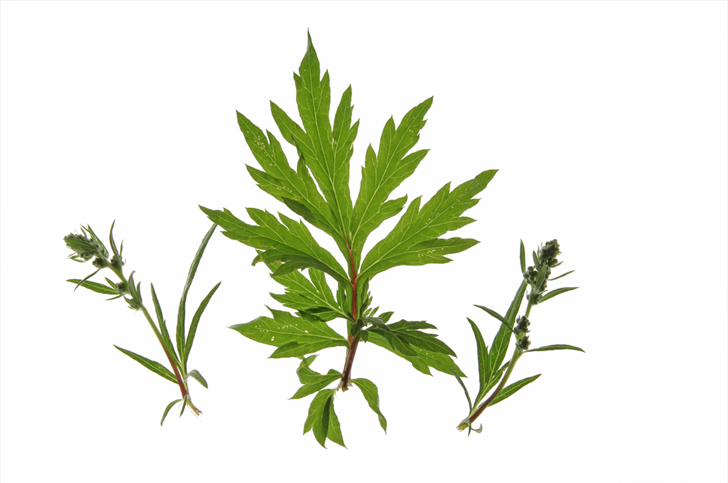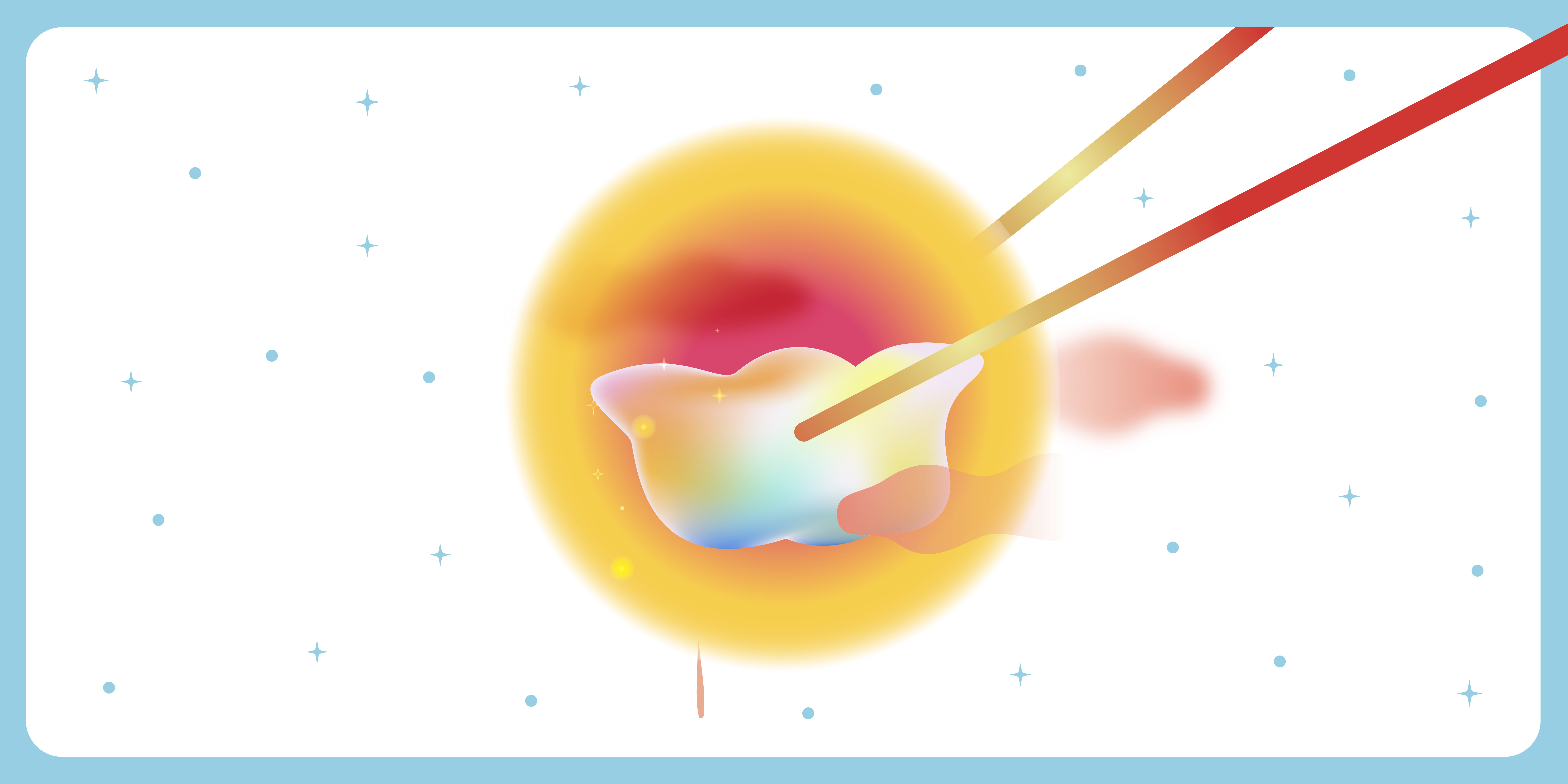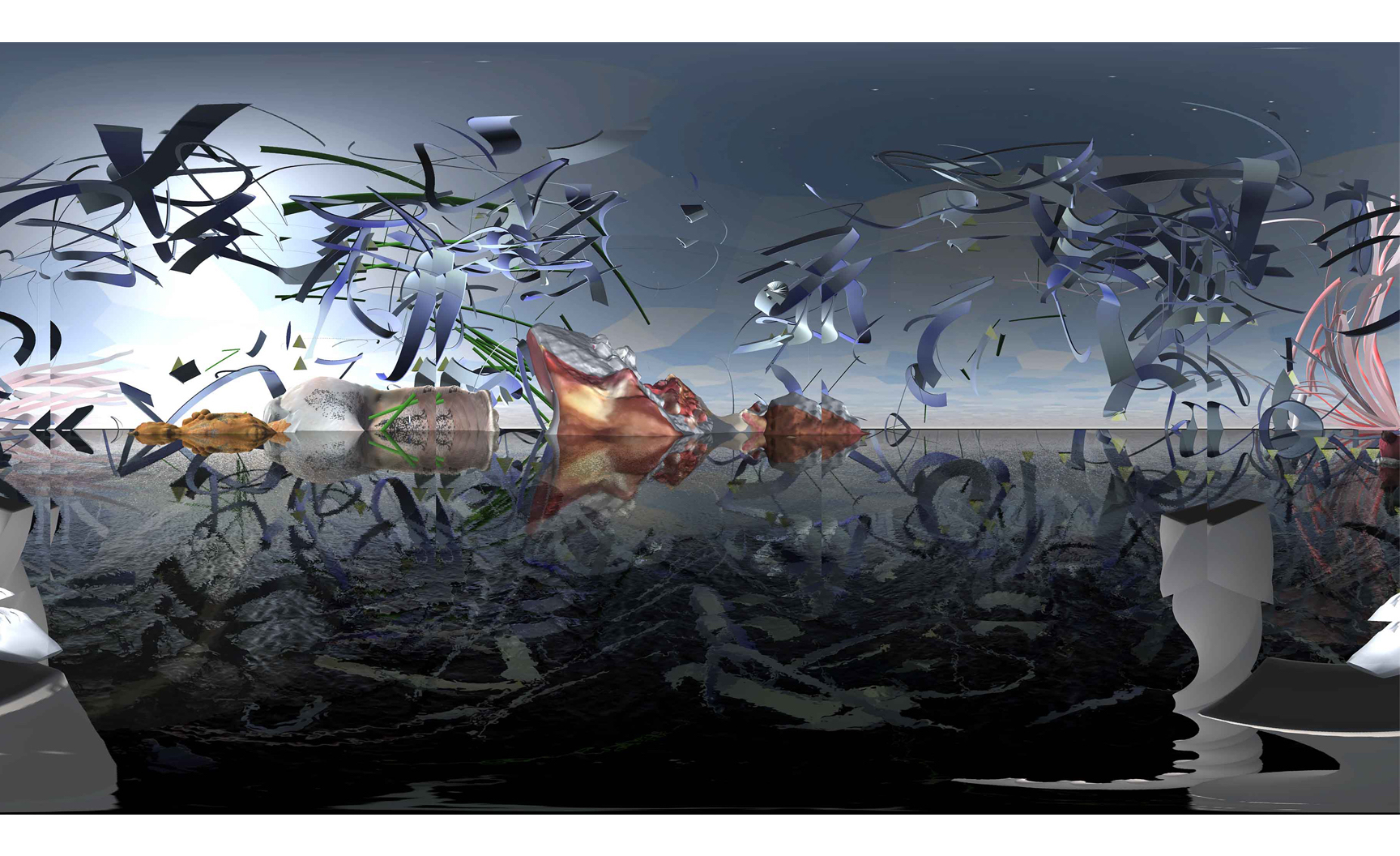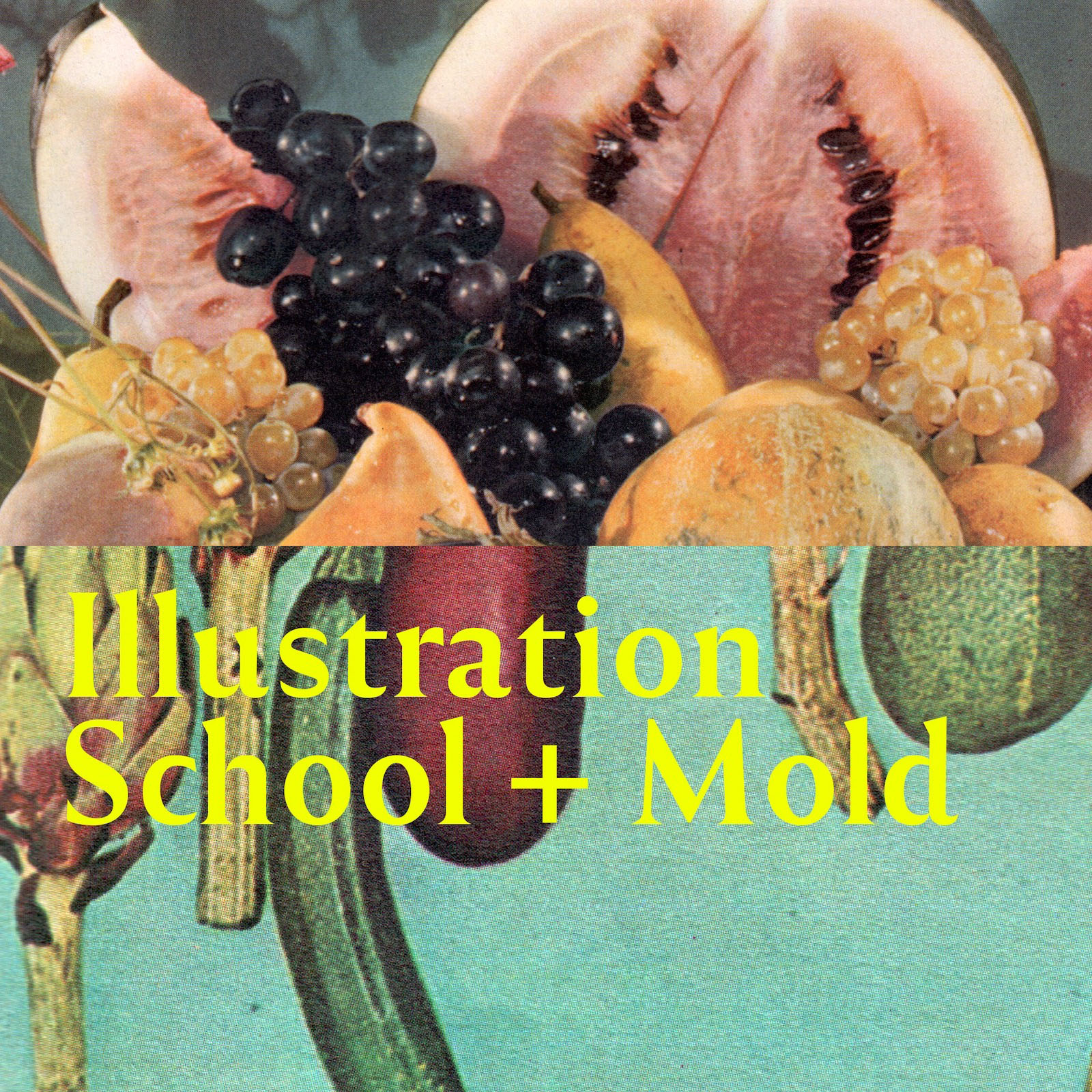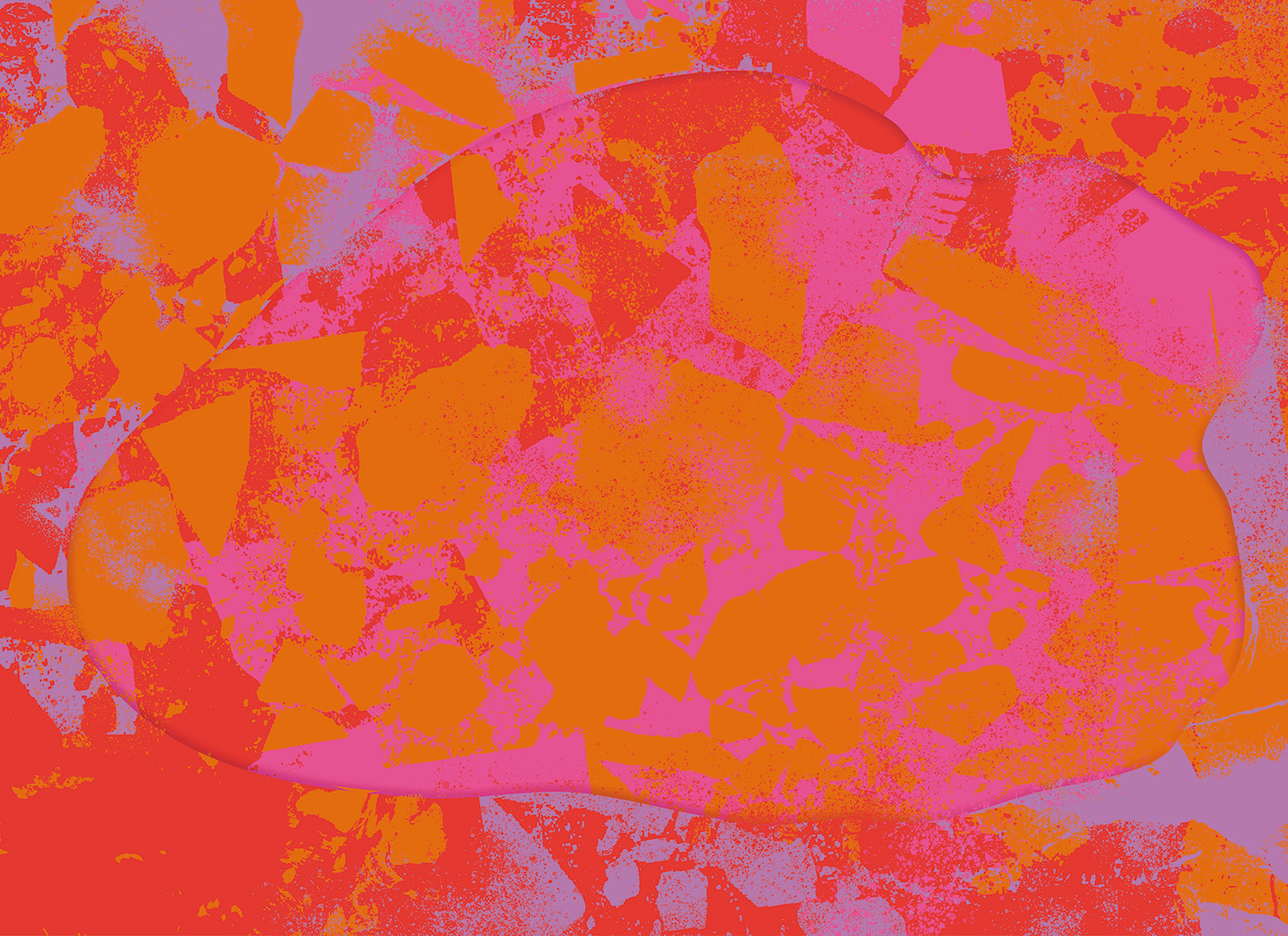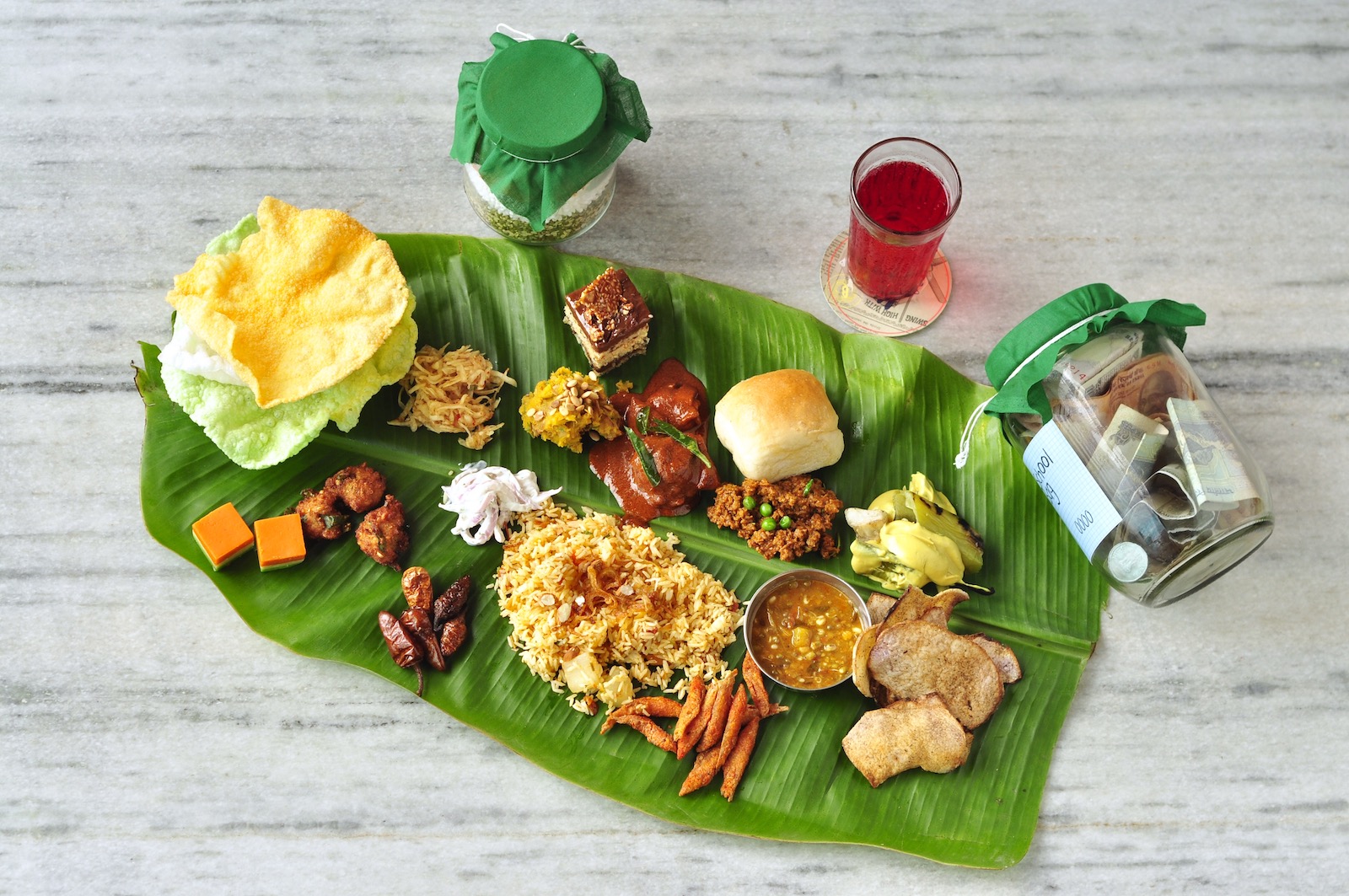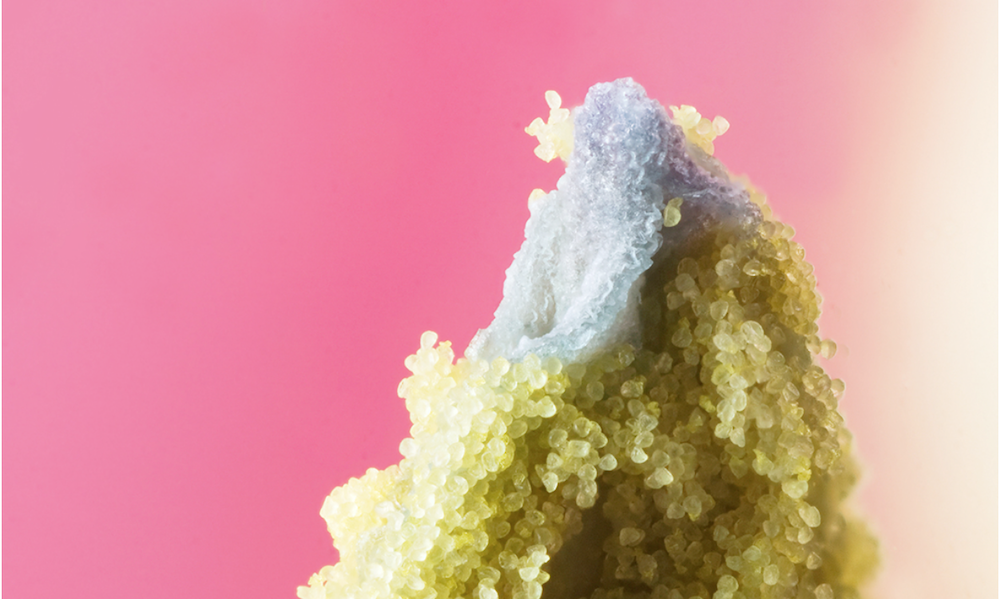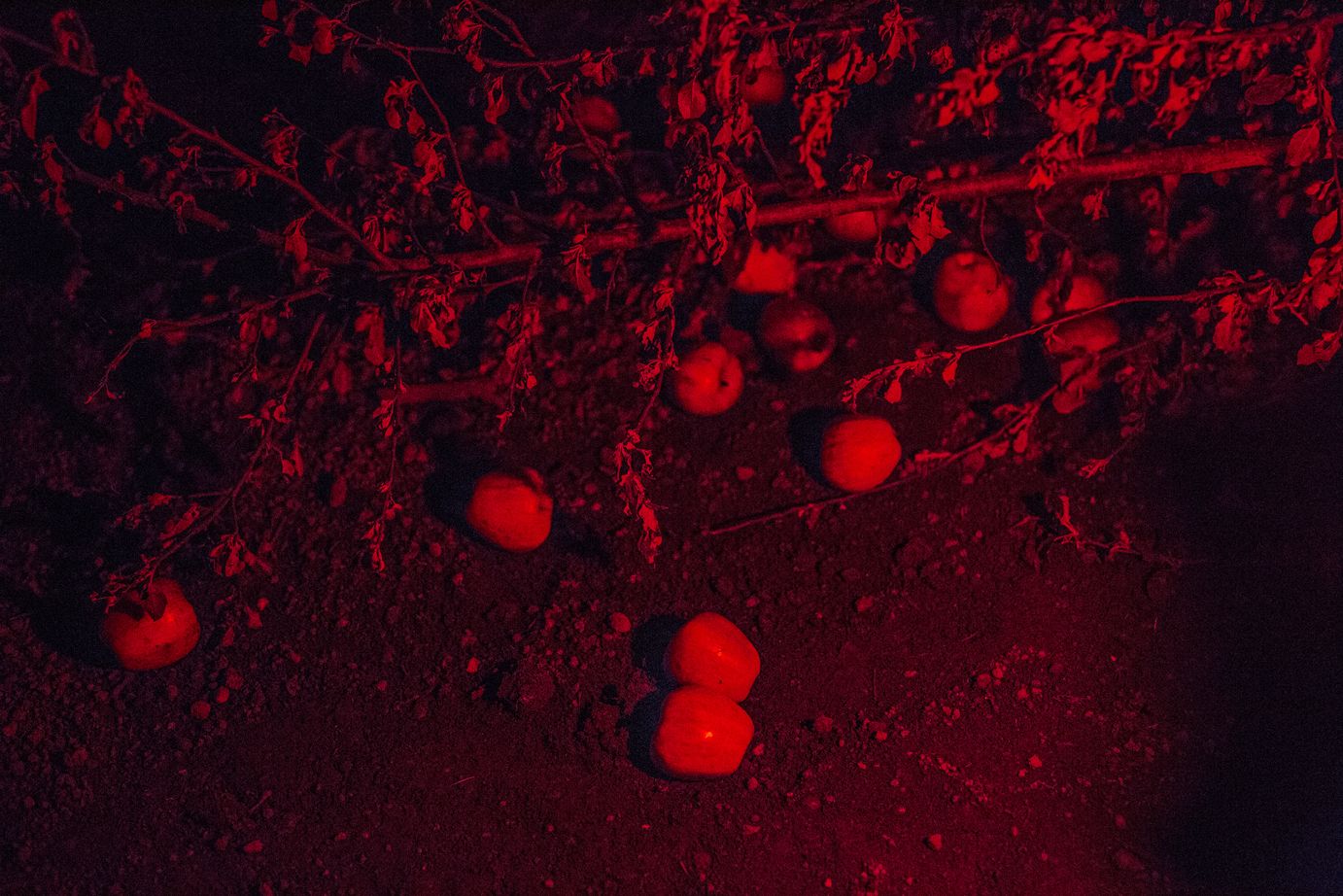This story is a part of MOLD’s reader-submitted project series. Submit your projects here for consideration.
Located on 3-acres of recovered farmland, éla! is an experimental garden space and hospitality project on the Greek island of Patmos.
Words and images by éla!.
PROJECT
Dedicated to the curation of natural wines and local organic food, éla! makes a spectacle out of telling the agricultural stories — bringing back an old way of drinking and eating.
Open only in the summers, éla! is designed as a stage. The farmland is anchored by a century-old cottage converted into a natural wine shop. The terrace-cum-restaurant overlooks the vineyard and holds court over the valley. Vintage ceramic amphoras and flowering bushes punctuate the terrace and shape the space between the large pinewood harvest tables. Dorothy Ashbery, Cesaria Evora, the boom boom of Italo disco, and gnarly 90s tracks play on the stereo — echoing through the valley of the holy island. The aroma is overwhelming. Oleander trees go mad with their scent in the dry summer air; pots overgrown with basil, mint, coriander, and thyme float out wild and herbaceous, and the kebabs sizzle smokey fat on the open charcoal grill. Baskets of homegrown vegetables from éla’s farm are scattered about the walkway.
éla! flips the rules of a restaurant on its head. They make a spectacle out of curating food & wine and put everyone on the stage with them. They take the best stuff from the ancient ways of Greek dinner parties. It is an educational performance of wine and food that articulates the history of local production, the farmer, the terroir, and a sense of place.
Problem
Wine lists. Who likes a wine list? It’s terrifying — all the names, numbers, places, spaces, and parentheses. People point their fingers at the person who knows the most, and then the point person puffs out their chest and runs their little index finger down the list like an academic in search of a reference.
And who’s here to help you? Sommeliers! Sommeliers are fickle creatures. At worst, they take all the oxygen out of a table. At best, they are storytellers. Either way, they are interlocutors. Most of the time they’ve already figured out the wine before the table even settles in. It’s a vibe check.
The problem is that the stories of the winemakers become an anchor, a tenderized anecdote to close the deal. They float to the bottom and stay there. Knowledge about the production of wines, the locality of grape varieties, and the hard-fought histories of generational farming are often lost.
Design Process
There is no wine list at éla! It infuriates the few and relieves the rest. No posturing, pretending, searching for something familiar. No meandering through the same old wines, the steady ones, the sips that you can taste before the bottle even arrives at your table.
Every single person who enters the secret garden of éla! must be taken hand-in-heart, by them, into the century-old Patmian cottage that houses our collection of natural wines.
The cottage is a nostalgic space laden with stories and feelings of the past. It’s intimate; there’s nowhere to hide. A faded blue door leads to a small room where they used to make wine decades ago. That’s where they sleep. The bottles are organized with an interior logic that they share with all. Few pay attention. Instead, they are warped into a wondrous state of being, almost childlike. They point at the bottles that entertain their eyes and ask questions.
Every bottle is a wellspring of knowledge. They tell stories of the farmers, the daughters who wade in wine up to their knees and then stomp all of it out, toes dripping wet with juice. It is the stories — and the labels — that lead people to their bottle of choice.
Sometimes, people spend up to 45 minutes in the shop. Sometimes, it’s the whole table, children too, that come along. Everybody gets involved. And when they sit down with the sun and watch the golden hills turn deep purple, they are at the edges of their seats to taste their choice — the wine that suits them that day.
Tomorrow, well, tomorrow will be a different story.
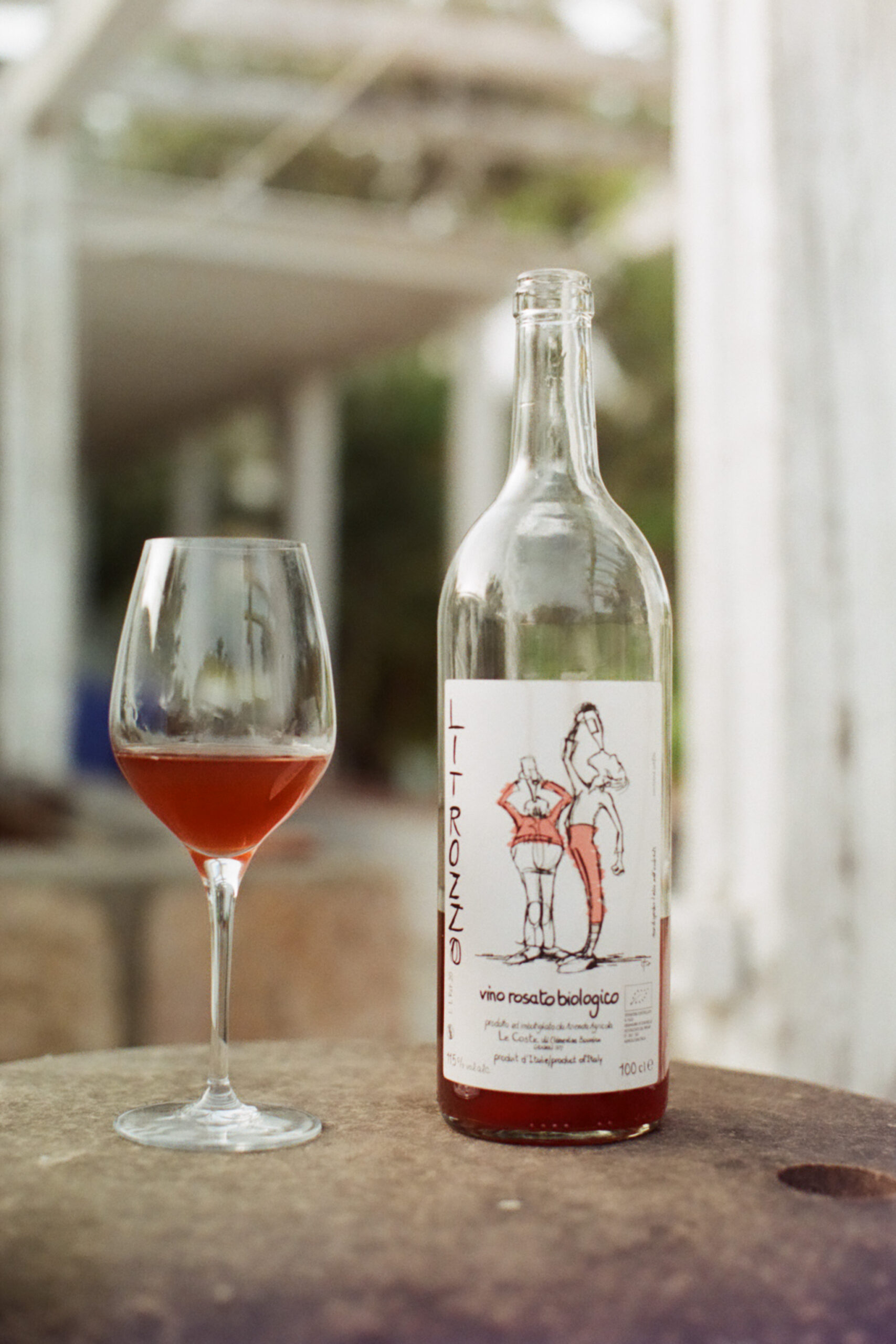
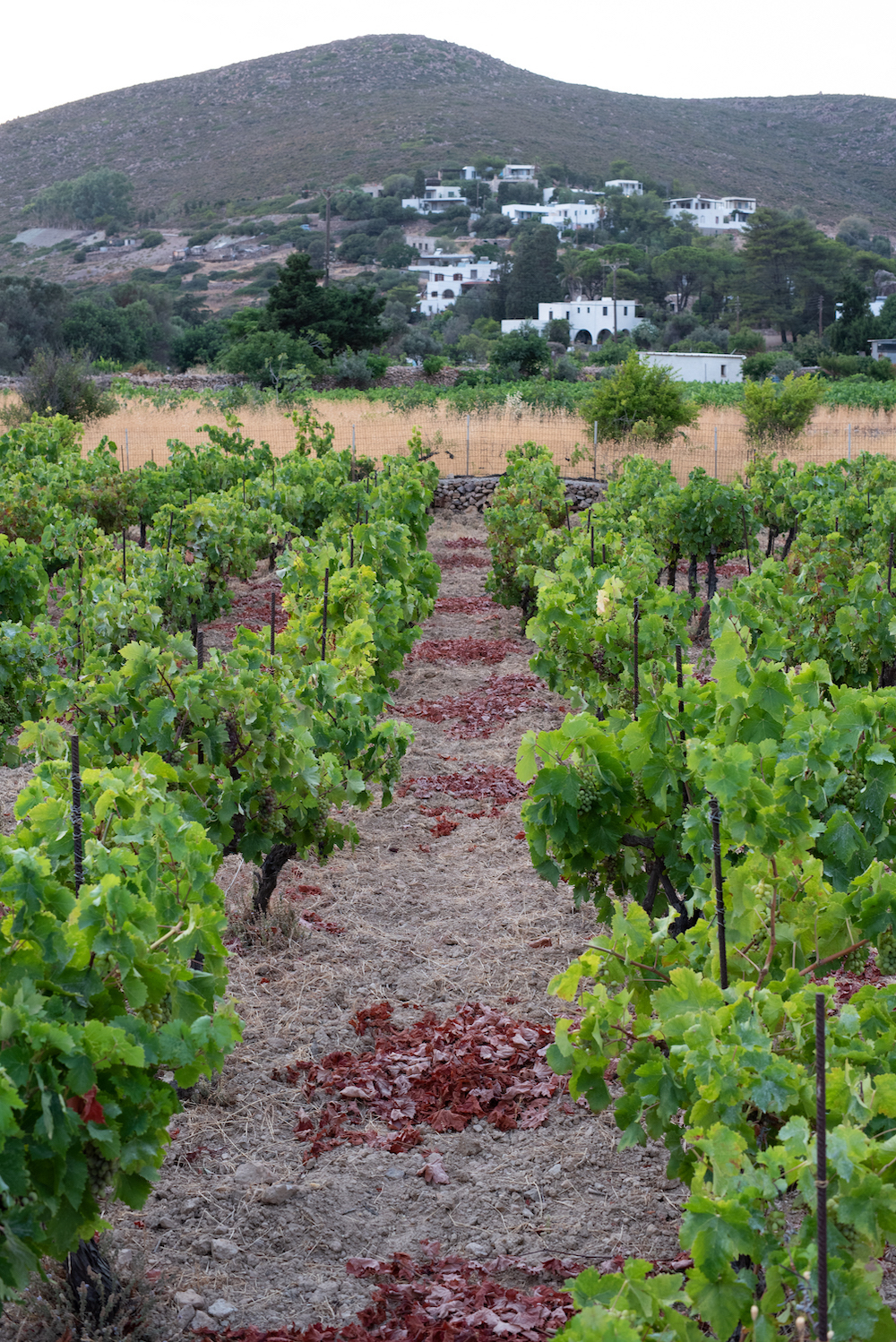
Shaping the Future of Food
It sounds simple, almost too simple. The project is not about innovation. It’s about picking and choosing what is right about the cultures of sharing food and wine. It’s about what they’ve lost. It’s the antithesis of restaurants feeling/looking like sterile bathrooms. It has nothing to do with technology. They aren’t throwing ourselves into a future. they are returning to something that worked and was destroyed.
In Greek, éla means come. It is what Greeks say when they pick up the phone. Éla! Get over here, my friend. Come and sit under the old olive tree, tilt your chin up, and get lost in the sinewy network of the ancient olives — older than all of us, even the man with wiley hair and a bone to pick with the village cat.
they throw parties, and they dance. they drink too much wine and turn the music up too loud. The food is simple and served without any flair. Everything is grilled on charcoal and prepared on the terrace. they’re young and sun-kissed, and they’ll tell the truth about the land. How the salt-water drinking goats in Ikaria taste divine. They drink salt water and brine themselves. Self-brining goats! How hilarious and absurd — why don’t you try some and let them tell you the good and bad of the goats in Greece?
they’ll talk about a man in Megara who was a computer scientist and decided to take up winemaking — the decision seemingly appeared out of thin air, he told them. How he makes his own wax to seal his bottles and how slow & tender the pine resin drips out from his trees.
The future of food needs to be based on knowledge. If we are going to create a culture of care around food and agriculture, people need to know where their food comes from and how it is farmed. They need to know the stories of farmers, and the myths of their soil. They need to know how difficult it is. How testy grapes can be. Mean, tart, sweet, and pretty all at once.
Every person who visits éla! leaves knowing something about what they ate/drank, and they are, without a doubt, better because of that knowledge.
About the Project Team
éla! is a partnership of two – Will Sapp and Tess Gruenberg. they fell in love on Patmos and éla! is in many ways our love child.
